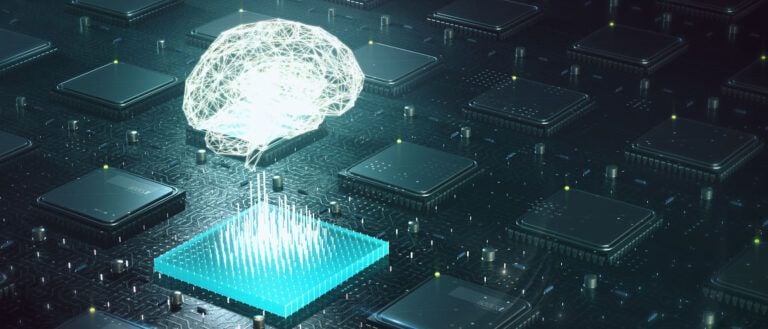The 9 Best Deep Learning Books for Beginners and Experts to Read in 2023

The global deep learning market size is estimated to reach $179.96 billion by 2030, growing at a Compound Annual Growth Rate (CAGR) of 39.2% from 2021 to 2030. Thus, the deep learning discipline, a subset of the sophisticated Machine Learning (ML) field, generates a huge demand for talent. Needless to say, when there is demand, attractive remuneration and job security tend to follow. In fact, the national average salary for deep learning engineers is $145,717 per year in the U.S. Data enthusiasts aspiring to establish a lucrative career path should check out the following list of top deep learning books to master this in-demand tech and upgrade their current skill level.
9 Best Deep Learning Books
Understanding deep learning is relatively simple for professionals with a solid concept of ML. Moreover, having sound knowledge of linear algebra, calculus, statistics, probability, and programming languages such as Python and R is an added advantage.
We’ve compiled a comprehensive list of core deep learning books as well as those pertinent to your field of expertise to help you advance your career.
-
Deep Learning by Aaron Courville, Ian Goodfellow, and Yoshua Bengio
This college-level, academic handbook covers crucial concepts of deep learning and can assist learners who are entirely new to this field. This book can be used by undergraduate or graduate students planning careers in the industry. It is also useful for software engineers who want to apply deep learning to their products or platforms.
Here are a few key concepts that the author has emphasized in the book:
- Linear algebra and probability methods such as linear factor models, autoencoders, and representation learning to explain how deep learning goes beyond just coding
- Popular deep learning techniques used by industry practitioners such as deep feedforward networks, regularization, optimization algorithms, convolutional networks, and sequence modeling
-
Hands-On Machine Learning With Scikit-Learn, Keras, and Tensorflow
This book demonstrates how simple and efficient tools are used to construct programs that learn data. To provide an intuitive understanding of the concepts and resources for developing intelligent systems, the book elaborates on the capabilities of Scikit and Tensorflow tools. Additionally, you can also master a wide range of concepts (including linear regression and deep neural networks) and work on exercises at the end of each chapter to test your knowledge.
This book allows you to:
- Explore the world of machine learning, especially neural networks
- Track a sample ML project end-to-end using Scikit-Learn
- Discover various training models such as Random Forests, Decision Trees, and Support Vector Machines
- Create and train neural networks by utilizing the TensorFlow library
- Explore neural net architectures such as deep reinforcement learning, recurrent nets, and convolutional nets
- Learn how to scale and train deep neural networks
- Apply real-world code examples without acquiring excessive machine learning theory or algorithm details
-
Deep Learning with Python by François Chollet
François Chollet, the creator of the well-known deep learning framework Keras, offers valuable insights for both novice and experienced machine learning practitioners in this book. First published in 2017, “Deep Learning with Python” became a huge hit and quickly achieved bestseller status. As a result, the author came up with an updated version in October 2021 packed with even more helpful tips and practical techniques.
Key features of the book:
- Practical code examples in Python
- An in-depth introduction to the Keras deep learning framework
- Points out the key differences between deep learning and Artificial Intelligence (AI)
-
Neural Networks and Deep Learning: A Textbook by Charu C. Aggarwal
This book covers deep learning theory and techniques and includes in-depth studies of how neural networks interact with conventional machine learning algorithms. Written in a textbook style, it consists of exercises, a solution manual, and instructor slides. You can find answers to the following questions by reading this guidebook:
- How do neural networks work? How are these better than off-the-shelf machine learning models built from scratch?
- When is depth applied to conventional neural networks?
- What are the uses of deep neural networks? What are the current pitfalls?
Additionally, real-life applications of neural networks in recommender systems, machine translation, image captioning, image classification, gaming based on reinforcement learning, and text analytics are covered in the book.
-
Deep Learning From Scratch by Seth Weidman
Data scientists already familiar with machine learning may find this book helpful. Starting with the fundamentals of deep learning, the book quickly progresses to the advanced concepts, models, and architectures for developing neural networks. By covering theoretical, mathematical, and conceptual explanations of deep learning, this book provides end-to-end knowledge and skills needed to build a lucrative career. Additionally, you will find numerous real-life examples using PyTorch, the popular deep learning framework, in the book.
-
Deep Learning: A Practitioner’s Approach by Josh Patterson
Building and deploying scalable, easy-to-maintain ML models is one of the biggest challenges companies face while using deep learning and machine learning technologies. “Deep Learning: A Practitioner’s Approach” attempts to address this exact issue by providing comprehensive knowledge on deep learning theory, industry best practices, and use cases.
Additionally, since this book is written by Josh Patterson, who created the DeepLearning4j (DL4J) standard Java programming library, it is a great opportunity to explore Java’s possibilities in deep learning workflows.
-
Deep Learning for Coders with fastai and PyTorch Ai Applications Without a PhD by Jeremy Howard
It’s no longer necessary to have a Ph.D. in Math or Computer Science to work in deep learning. This is due to the development of intuitive, user-friendly libraries and interfaces. One prominent example of such a library is fastai, which provides a consistent interface for the most frequently used deep learning applications.
This hands-on guidebook allows professionals to develop deep learning models with minimum math knowledge, small amounts of data, and minimal code. In addition to coding examples, the book covers deep learning theory that helps readers comprehend the science behind neural networks.
-
Hands-On Deep Learning Algorithms with Python by Sudharsan Ravichandran
Professionals who are new to deep learning but have some experience in machine learning and Python programming will find this book helpful. This book introduces you to basic and advanced deep learning algorithms and their mathematical principles. It also demonstrates how to use the TensorFlow library to implement deep learning algorithms such as Convolutional Neural Networks (CNN) and Recurrent Neural Networks (RNN) from scratch.
-
Grokking Deep Learning by Andrew W. Trask
“Grokking Deep Learning” provides one of the most beginner-friendly introductions to deep learning. The book integrates intuitive theories with code examples to demonstrate creating neural networks from scratch. It’s done using Python and NumPy, its well-known math-supporting library.
The book offers a great starting point for your deep learning journey before you move on to more complex frameworks. It covers essential use cases, from processing images to translating text into multiple languages.
ALSO READ: Top 10 Machine Learning Python Libraries for Beginners and Experts
Learn with Emeritus
Self-motivated students and professionals constantly read and stay up-to-date with the recent advancements in their industry. In addition to reading the latest deep learning books in 2023, take your mastery of deep learning up a notch. Enroll in Emeritus’ industry-aligned online AI and machine learning courses to be a part of the comprehensive learning experience and take your career to the next level!
Write to us at content@emeritus.org.





